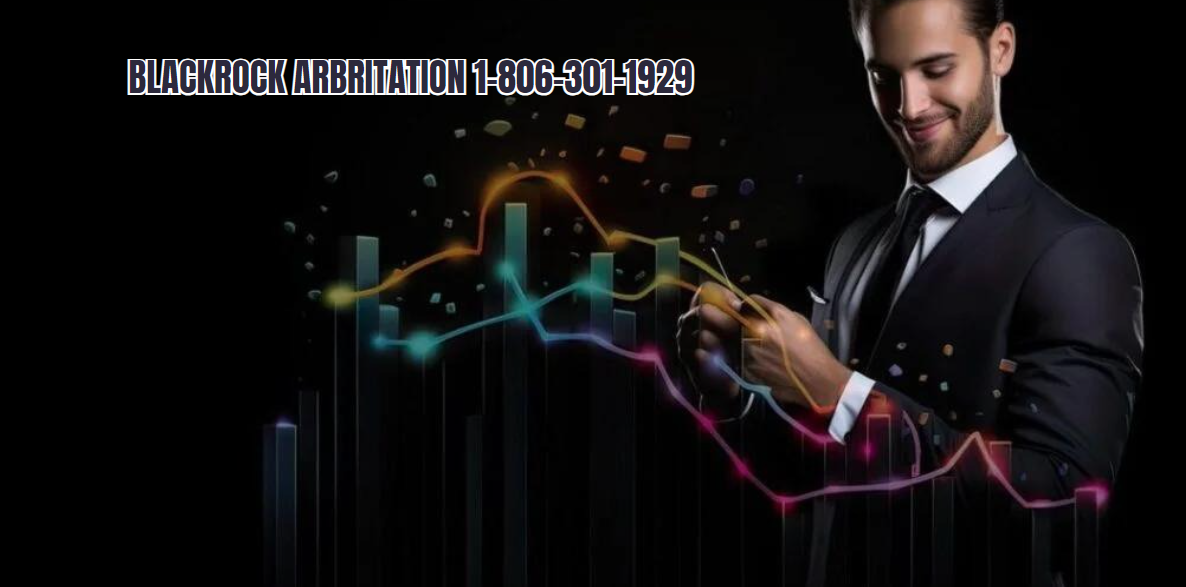BlackRock Arbitration: A Comprehensive Guide to “BlackRock Arbitration 1-806-301-1929”
BlackRock is one of the world’s largest asset management companies, with over $10 trillion in assets under management (AUM). As a global investment firm, BlackRock serves institutional and retail investors alike, offering a range of financial products such as mutual funds, exchange-traded funds (ETFs), and private equity investments.
Given its prominence in the financial sector, disputes and conflicts are not uncommon, and BlackRock has established a formal arbitration process to resolve such issues.
In this article, we will explore the topic of BlackRock arbitration with a particular focus on the keyword “BlackRock Arbitration 1-806-301-1929”, which is a designated point of contact for inquiries related to the arbitration process.
The goal is to provide a detailed, comprehensive, and well-optimized article that addresses every aspect of BlackRock arbitration, from the legal framework to potential disputes, while offering unique insights and practical advice for individuals and businesses in the USA.
Introduction to BlackRock Arbitration
Financial disputes involving large firms like BlackRock can arise due to a variety of reasons, including contract disagreements, investment losses, and issues related to fiduciary duties. To manage these conflicts in an efficient and legally binding manner, BlackRock employs arbitration as an alternative dispute resolution mechanism. For anyone seeking guidance on initiating an arbitration case with BlackRock, “BlackRock Arbitration 1-806-301-1929” serves as a direct contact line for immediate assistance.
Arbitration offers a private, neutral forum where disputes are resolved outside the traditional courtroom setting. This article delves into the nuances of BlackRock arbitration, its legal framework, common types of disputes, and how to best navigate the process to achieve a fair resolution.
The Importance of Arbitration in Financial Disputes
Arbitration has become a critical component of conflict resolution in the financial services industry. As the sector becomes increasingly complex, with financial products that are difficult to comprehend, disputes between investors and firms like BlackRock are inevitable. Arbitration provides a streamlined and cost-effective process to resolve such disputes without going through the time-consuming and expensive court system.
For both investors and institutions, arbitration represents a way to reach a legally binding decision in a controlled and confidential environment. This reduces the potential for reputational damage while allowing both parties to focus on resolution rather than litigation. BlackRock Arbitration 1-806-301-1929 is a valuable resource for those looking to initiate or inquire about the arbitration process with BlackRock.
Understanding the Process: What Is BlackRock Arbitration?
Arbitration is a legal process that allows parties involved in a dispute to present their cases before a neutral third-party arbitrator or panel of arbitrators. In the case of BlackRock arbitration, investors or clients who believe they have been wronged by BlackRock’s investment decisions or management practices can seek resolution through this process.
Here’s how the arbitration process generally works:
- Filing a Claim: The investor or claimant files a formal arbitration request, stating their case and the compensation they are seeking.
- Selection of Arbitrators: Both parties agree on one or more arbitrators who will oversee the dispute. These arbitrators are often experienced legal or financial professionals.
- Pre-Hearing Conferences: These are meetings held between the parties and the arbitrators to establish the groundwork for the arbitration, including setting deadlines and identifying the evidence to be presented.
- Presentation of Evidence: Both parties present their evidence, including documents, testimony, and expert opinions.
- Arbitration Hearing: A formal hearing is held where both sides argue their case in front of the arbitrator(s).
- Arbitrator’s Decision: After reviewing all the evidence, the arbitrator(s) make a binding decision, which both parties must follow.
Arbitration differs from litigation in that it is usually faster, less formal, and less costly. Importantly, the decisions made in arbitration are binding, meaning that they are final and enforceable by law. For BlackRock arbitration inquiries, the BlackRock Arbitration 1-806-301-1929 contact line is a reliable source of information.
How to Reach BlackRock for Arbitration Assistance: 1-806-301-1929
For individuals seeking to start the arbitration process or to inquire about their rights and obligations, BlackRock has a dedicated support line. By calling BlackRock Arbitration 1-806-301-1929, investors and claimants can receive immediate assistance on a range of issues, including:
- Filing a dispute: Guidance on how to initiate an arbitration claim with BlackRock.
- Understanding the arbitration process: A step-by-step breakdown of what to expect during the arbitration.
- Clarification of investor rights: Detailed explanations of the legal protections available to investors in arbitration.
- Assistance with documentation: Help in organizing and preparing the necessary paperwork for the arbitration process.
The BlackRock Arbitration 1-806-301-1929 contact line is particularly helpful for first-time claimants or individuals unfamiliar with the intricacies of financial arbitration.
Typical Disputes Handled in BlackRock Arbitration
Arbitration with BlackRock typically involves disputes arising from investment decisions, management of funds, or breaches of fiduciary duties. Below are some common types of disputes that may be resolved through BlackRock arbitration:
1. Investment Losses
Investors may file claims if they believe that BlackRock’s decisions led to substantial losses, particularly if these losses resulted from negligence, misconduct, or a failure to follow investment mandates.
2. Breach of Fiduciary Duty
BlackRock, like all investment managers, has a fiduciary duty to act in the best interests of its clients. If an investor feels that BlackRock breached this duty—by, for example, making risky investments without informing the client—they may seek arbitration.
3. Contract Disputes
Contractual disagreements between investors and BlackRock over terms and conditions, fees, or performance benchmarks are common grounds for arbitration.
4. Misrepresentation
Investors can claim that BlackRock misrepresented investment opportunities or risks, which could be grounds for seeking damages through arbitration.
The Legal Framework Behind Arbitration
Arbitration is governed by a set of legal principles and statutes that vary by jurisdiction. In the U.S., arbitration is typically guided by the Federal Arbitration Act (FAA), which establishes the enforceability of arbitration agreements and the process for conducting arbitration. BlackRock, like most financial institutions, includes arbitration clauses in its contracts with clients to ensure that disputes are resolved through arbitration rather than litigation.
Key Legal Aspects of Arbitration:
- Enforceability of Arbitration Agreements: Courts generally uphold arbitration agreements, meaning that clients who have signed such agreements are required to resolve disputes through arbitration.
- Binding Decisions: Arbitration decisions are legally binding and can only be overturned in very limited circumstances, such as cases of arbitrator bias or procedural errors.
- Confidentiality: Arbitration proceedings are typically private, which protects both parties from public scrutiny.
Understanding the legal framework is crucial for anyone involved in the arbitration process. BlackRock Arbitration 1-806-301-1929 can provide specific details on how these legal principles apply to your case.
Why Opt for Arbitration Over Litigation?
There are several reasons why arbitration is often preferred over traditional litigation, particularly in the context of financial disputes. For BlackRock and its clients, arbitration offers the following advantages:
1. Speed
Arbitration is generally faster than litigation. While court cases can drag on for years, arbitration cases can be resolved in a matter of months. This is beneficial for investors who want a quick resolution to their disputes.
2. Cost
Litigation is expensive, with legal fees, court costs, and discovery expenses piling up. Arbitration tends to be more cost-effective, as the process is streamlined and does not require the same level of formal procedures as court cases.
3. Confidentiality
Arbitration is a private process, unlike court cases, which are public. This allows both parties to resolve disputes without airing their grievances in public, preserving their reputations.
4. Expert Arbitrators
In arbitration, parties can choose arbitrators with specific expertise in financial matters, ensuring that the decision-makers have a deep understanding of the complex issues involved.
Costs Associated with BlackRock Arbitration
One of the primary concerns for investors considering arbitration is the cost. While arbitration is generally more affordable than litigation, it still involves certain expenses, including:
- Filing Fees: There are costs associated with submitting a formal arbitration claim. These fees can vary depending on the complexity and size of the dispute.
- Arbitrator Fees: Arbitrators charge for their time and expertise, and their fees are typically split between the parties involved in the dispute.
- Legal Representation: While not mandatory, many parties choose to hire legal counsel to represent them during arbitration, which adds to the overall cost.
BlackRock may cover some of these costs if it is found liable in the dispute. For more information on arbitration costs, contacting BlackRock Arbitration 1-806-301-1929 can provide clarity on what to expect financially.
How BlackRock Prepares for Arbitration
BlackRock, as a large financial institution, is well-prepared to handle arbitration cases. The company employs a team of in-house legal experts and external counsel to ensure that it is fully equipped to defend its actions in arbitration proceedings.
Steps BlackRock Takes:
- Review of Claims: BlackRock conducts a thorough internal review of the claims brought against it to assess the validity and potential risks.
- Preparation of Evidence: The company gathers relevant documents, communications, and expert testimony to build a robust defense.
- Negotiation: In many cases, BlackRock may attempt to negotiate a settlement before arbitration begins to avoid the time and expense of a full hearing.
BlackRock’s preparedness means that claimants need to present a well-organized and compelling case to succeed in arbitration. The BlackRock Arbitration 1-806-301-1929 line can offer guidance on how to best prepare for arbitration against the company.
Investor Rights in BlackRock Arbitration
Investors have certain rights when engaging in arbitration with BlackRock. These rights are designed to ensure that the process is fair and that both parties have an equal opportunity to present their cases.
Key Investor Rights:
- Right to Representation: Investors have the right to hire legal counsel to represent them during the arbitration process.
- Right to Evidence: Both parties are entitled to present evidence, including documents, emails, and expert testimony.
- Right to a Fair Hearing: Arbitrators are required to remain impartial and to conduct the proceedings in a fair and unbiased manner.
- Right to Appeal: While arbitration decisions are generally final, there are limited circumstances in which an appeal may be possible, such as in cases of arbitrator misconduct or bias.
For more detailed information on investor rights, BlackRock Arbitration 1-806-301-1929 can offer additional insights.
The Role of Attorneys in the Arbitration Process
Legal representation is not mandatory in arbitration, but it can be highly beneficial. Attorneys who specialize in financial disputes can help investors navigate the complexities of arbitration, ensuring that their rights are protected and that they present a strong case.
Benefits of Legal Representation:
- Expert Guidance: Attorneys understand the legal and procedural intricacies of arbitration and can help clients avoid costly mistakes.
- Preparation of Evidence: Lawyers can assist in gathering and organizing the evidence needed to support an investor’s claim.
- Negotiation: In some cases, attorneys can negotiate a settlement before arbitration begins, saving time and money.
Investors considering arbitration should weigh the pros and cons of hiring an attorney. For those who need assistance finding legal representation, BlackRock Arbitration 1-806-301-1929 can provide recommendations or referrals.
Common Outcomes of BlackRock Arbitration
The outcomes of arbitration cases can vary depending on the nature of the dispute and the strength of the evidence presented. However, some common outcomes include:
- Monetary Compensation: In cases where the investor’s claim is upheld, BlackRock may be required to pay damages to the investor.
- Dismissal of Claims: If the arbitrators find that the investor’s claims lack merit, the case may be dismissed without any compensation.
- Settlement: In many cases, the parties reach a settlement agreement before the arbitration hearing concludes.
Investors should enter the arbitration process with realistic expectations about potential outcomes. For more information on likely arbitration results, BlackRock Arbitration 1-806-301-1929 can offer case-specific advice.
FAQs About BlackRock Arbitration
1. What is the contact number for BlackRock arbitration assistance?
The dedicated contact number for BlackRock arbitration inquiries is 1-806-301-1929.
2. How long does BlackRock arbitration typically take?
Arbitration can take anywhere from a few months to over a year, depending on the complexity of the case and the availability of arbitrators.
3. Is arbitration with BlackRock binding?
Yes, arbitration decisions are legally binding and enforceable by law.
4. Can I represent myself in BlackRock arbitration?
Yes, individuals can represent themselves in arbitration, but it is often beneficial to hire legal counsel, especially for complex cases.
5. What types of disputes are resolved through BlackRock arbitration?
Common disputes include investment losses, breach of fiduciary duty, contract disputes, and misrepresentation claims.
Conclusion
Arbitration offers a fair and efficient way for investors to resolve disputes with BlackRock without going through the costly and time-consuming process of litigation. By calling BlackRock Arbitration 1-806-301-1929, investors can receive immediate guidance on how to initiate the arbitration process and what to expect during the proceedings.
Understanding the legal framework, investor rights, and potential outcomes of BlackRock arbitration is essential for anyone considering this route. Whether you’re an individual investor or a large institution, arbitration can provide a path to resolution that is both efficient and binding.






